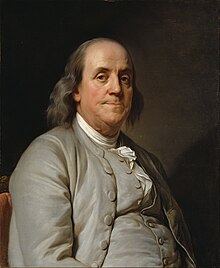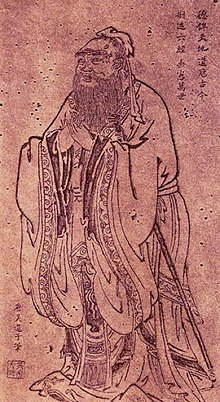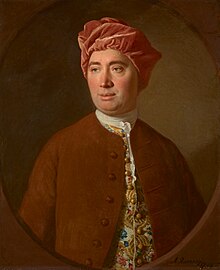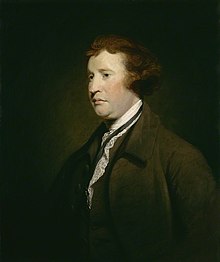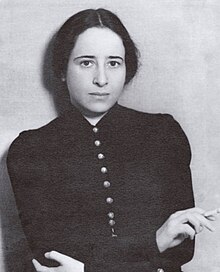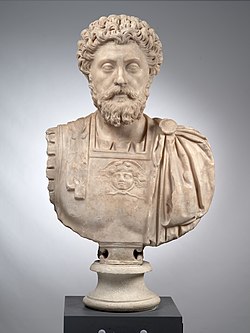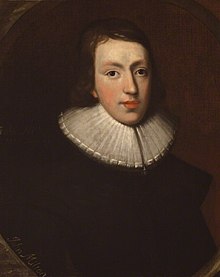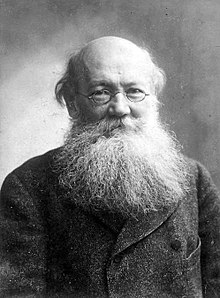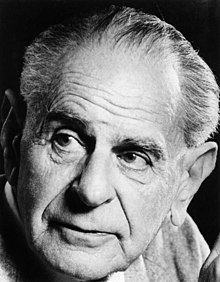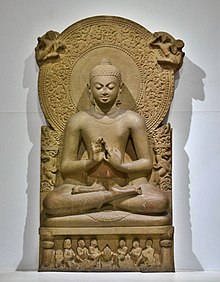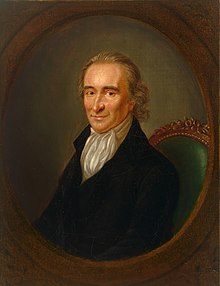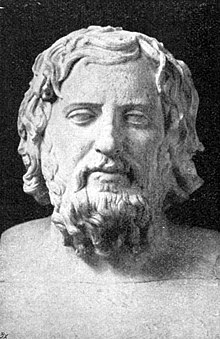
Social philosophers
Social philosophy examines questions about the foundations of social institutions, social behavior, and interpretations of society in terms of ethical values rather than empirical relations. Social philosophers emphasize understanding the social contexts for political, legal, moral and cultural questions, and the development of novel theoretical frameworks, from social ontology to care ethics to cosmopolitan theories of democracy, natural law, human rights, gender equity and global justice.
20 episodes
Episodes in this category also belong to the following categories:
Averroes
Melvyn Bragg discusses the philosopher Averroes who worked to reconcile the theology of Islam with the rationality of Aristotle, achieving both fame and infamy.
5 October 2006
Featuring: Amira Bennison, Peter Adamson, Anthony Kenny
PhilosophyEpistemologistsCritics of atheismPhilosophers of literaturePhilosophers of logicLogiciansSocial philosophersAristotelian philosophersArabic-language commentators on AristotleCritics of deismPhilosophers of culturePhilosophers of languageIslamic philosophersPhilosophers of psychologyPhilosophers from al-AndalusOntologistsPhilosophers of mindPolitical philosophersPhilosophers of religionPeople from Córdoba, Spain12th-century Muslim theologiansPhilosophers of sciencePhilosophers of historyCritics of ChristianityBenjamin Franklin
Melvyn Bragg and his guests discuss the life and work of the scientist, writer, printer, diplomat and American founding father Benjamin Franklin.
1 March 2012
Featuring: Simon Middleton, Simon Newman, Patricia Fara
CultureMasonic grand mastersFellows of the Royal SocietyHonorary members of the Saint Petersburg Academy of SciencesIndependent scholarsAmerican male non-fiction writersTheorists on Western civilizationPhilosophers of literatureAmerican deistsAge of EnlightenmentSocial philosophersPhilosophy writersPhilosophers of technologyAmerican political philosophersActivists for African-American civil rightsWriters about religion and sciencePolitical activists from PennsylvaniaAphoristsRecipients of the Copley MedalRhetoric theoristsFellows of the American Academy of Arts and Sciences18th-century pseudonymous writersAmerican people of English descentAmerican philosophers of cultureHumor researchersAmerican male journalistsRecreational cryptographers, Writers from Boston, Writers from PhiladelphiaHall of Fame for Great Americans inducteesAmerican philosophers of religion18th-century American politicians, American Freemasons, Signers of the United States ConstitutionPhilosophers from MassachusettsMembers of the American Philosophical SocietyPeople associated with electricityCreators of writing systemsWriters about activism and social changePhilosophers of scienceAmerican slave ownersPhilosophers of historyAmerican autobiographers18th-century American writers, Founding Fathers of the United States, People of the American EnlightenmentSimple living advocatesIndependent scientistsAmerican philosophers of educationConfucius
Melvyn Bragg discusses the philosophy of Confucius, a body of ideas which, more than any other philosophy, has defined what it is to be Chinese.
1 November 2001
Featuring: Frances Wood, Tim Barrett, Tao Tao Liu
PhilosophyFounders of religionsPhilosophers of culturePhilosophers of law5th-century BC historiansPhilosophers of educationSocial philosophers5th-century BC Chinese writers, 6th-century BC Chinese writers, Chinese political philosophers, Deified Chinese men, Zhou dynasty philosophers, Zhou dynasty writers5th-century BC religious leaders, 6th-century BC religious leadersAphoristsClassical humanistsDavid Hume
Melvyn Bragg and his guests discuss the work of David Hume, the philosopher and leading figure of the Scottish Enlightenment.
6 October 2011
Featuring: Peter Millican, Helen Beebee, James Harris
PhilosophyCriticism of rationalismEpistemologistsAction theorists18th-century British essayistsMetaphilosophersSkeptic philosophersPhilosophers of social scienceTheorists on Western civilizationPhilosophers of logicSecular humanistsSocial philosophersPhilosophy writersPhilosophers of economicsWriters about religion and sciencePhilosophers of identityBritish philosophers of educationVirtue ethicistsBritish male non-fiction writers18th-century British philosophersPhilosophers of psychologyPhilosophers of artCritics of the Catholic ChurchBritish critics of religionsPhilosophers of mathematicsAlumni of the University of EdinburghConservatismEmpiricistsOntologistsPhilosophers of mindDeist philosophersPeople of the Scottish EnlightenmentPhilosophers of religionFreethought writersBritish consciousness researchers and theoristsEnlightenment philosophersWriters about activism and social changePhilosophers of sciencePhilosophers of historyBritish male essayistsEdmund Burke
Melvyn Bragg and guests discuss the work of the philosopher, politician and writer Edmund Burke, whose views on revolution in America and France were hugely influential.
3 June 2010
Featuring: Karen O'Brien, Richard Bourke, John Keane
PhilosophyBritish political philosophersEnglish libertariansNatural law ethicistsIrish Freemasons, Irish libertarians, Irish people of English descentBritish MPs 1774–1780Historians of the French RevolutionEnglish people of Irish descent18th-century philosophersClassical liberalismStreathamitesSocial philosophers18th-century English writersPhilosophers of economics18th-century Irish philosophersVirtue ethicistsCritics of deism18th-century English philosophersPhilosophers of cultureIrish AnglicansPhilosophers of education18th-century Irish writersPhilosophers of artBritish MPs 1784–1790, British MPs 1790–1796Writers from Dublin (city)18th-century Anglo-Irish people, 18th-century Irish male writersRectors of the University of GlasgowConservatismPolitical philosophersPhilosophers of religionAnglican philosophersAlumni of Trinity College DublinBritish MPs 1780–1784, Members of the Parliament of Great Britain for English constituenciesPhilosophers of history18th-century English male writersHannah Arendt
Melvyn Bragg and guests discuss the ideas of Hannah Arendt who examined totalitarianism and politics and, when covering the Eichmann trial, explored 'the banality of evil'.
2 February 2017
Featuring: Lyndsey Stonebridge, Frisbee Sheffield, Robert Eaglestone
PhilosophyPrinceton University facultyGerman political philosophersExistentialists20th-century American women writersIntellectual historians, University of Chicago facultyUniversity of Marburg alumniJewish existentialistsWomen religious writersPhilosophers of lawMembers of the American Academy of Arts and LettersSocial philosophersPhilosophy writersPhilosophers of technologyAmerican political philosophers20th-century German women writersGerman women philosophersFellows of the American Academy of Arts and SciencesPhilosophers of cultureThe New School faculty20th-century American essayistsExilliteratur writersJewish agnosticsGerman agnosticsGerman Ashkenazi JewsAmerican Ashkenazi Jews, American Zionists, American agnostics, German Zionists20th-century German philosophers20th-century American philosophers20th-century German non-fiction writersGerman ethicists, German philosophers of educationHeidelberg University alumniPolitical philosophersJewish emigrants from Nazi Germany to the United StatesPhilosophers of scienceScholars of antisemitismPhilosophers of historyAmerican philosophers of educationHobbes
Melvyn Bragg discusses Thomas Hobbes, the great 17th century philosopher who famously said that ungoverned man lived a life that was ‘solitary, poor, brutish and short’.
1 December 2005
Featuring: Quentin Skinner, David Wootton, Annabel Brett
PhilosophyEpistemologistsMaterialistsNatural law ethicistsAlumni of St John's College, Cambridge17th-century English philosophersTheorists on Western civilizationEnglish physicistsPhilosophers of lawSocial philosophersBritish philosophers of educationRhetoric theoristsBritish critics of ChristianityPhilosophers of culturePhilosophers of language17th-century writers in LatinBritish critics of religionsCritics of the Catholic Church17th-century English writersPolitical realistsPhilosophers of mathematicsEnglish theologiansEmpiricistsOntologistsPhilosophers of mindMetaphysiciansPhilosophers of religionThomas HobbesEnglish political philosophersPhilosophers of sciencePhilosophers of history17th-century English male writersKierkegaard
Melvyn Bragg and guests discuss the rich and radical ideas of Soren Kierkegaard, often called the father of Existentialism.
20 March 2008
Featuring: Jonathan Rée, Clare Carlisle, John Lippitt
PhilosophyEpistemologists19th-century essayistsChristian humanistsUniversity of Copenhagen alumniMetaphilosophersExistentialistsPhilosophers of deathPhilosophers of literatureExistentialist theologians19th-century male writersChristian poetsSocial philosophersPhilosophy writersAphoristsChristian ethicistsIrony theoristsPhilosophers of culturePeople celebrated in the Lutheran liturgical calendarPhilosophers of psychologyPhilosophers of artChristian radicalsOntologistsPhilosophers of lovePhilosophers of mindMetaphysicians19th-century pseudonymous writers19th-century deaths from tuberculosisPhilosophers of religionMarcus Aurelius
Melvyn Bragg and guests discuss the life, meditations and reputation of this stoic and philosopher king, who Machiavelli called the last of the 'Five Good Emperors'.
25 February 2021
Featuring: Simon Goldhill, Angie Hobbs, Catharine Edwards
Marx
Melvyn Bragg discusses Karl Marx who once said that while other philosophers wanted to interpret the world, he wanted to change it. And he changed the world with his Communist Manifesto.
14 July 2005
Featuring: A. C. Grayling, Francis Wheen, Gareth Stedman Jones
PhilosophyEpistemologistsCritics of political economySocialist feministsHumboldt University of Berlin alumniMaterialistsUniversity of Jena alumniGerman political philosophersGerman anti-capitalists, German socialist feminists, Jewish communistsFellows of the Royal Society of Arts19th-century German philosophersTheorists on Western civilizationStateless peoplePamphleteersMarxist theoristsPhilosophers of lawCritics of work and the work ethicSocial philosophersPhilosophers of technologyMembers of the International Workingmen's AssociationPhilosophers of economicsWriters about religion and scienceWriters about globalizationUniversity of Bonn alumniPhilosophers of culturePhilosophers of educationPhilosophical anthropologyGerman revolutionariesAnti-consumerists19th-century atheistsCritics of religionsAtheist philosophersCritics of JudaismEconomic historians, German sociologistsOntologistsPhilosophers of mindJewish socialistsMetaphysiciansGerman writers on atheismAnti-nationalistsGerman Marxist writersPhilosophers of religionBurials at Highgate CemeteryWriters about activism and social change19th-century German historiansPhilosophers of sciencePhilosophers of historyGerman male non-fiction writersAnti-imperialistsMilton
Melvyn Bragg examines the literary and political career of the 17th century poet John Milton, examining work such as Paradise Lost as well as his role as propagandist during the English Civil War.
7 March 2002
Featuring: John Carey, Lisa Jardine, Blair Worden
Mythopoeic writersChristian humanistsBlind writersEnglish male dramatists and playwrightsPeople from the City of LondonLiteracy and society theorists17th-century English dramatists and playwrights17th-century English philosophersEnglish writers with disabilitiesBritish philosophers of religionPamphleteersNeoclassical writersRhetoriciansBritish free speech activistsEpic poetsChristian poetsSocial philosophersMale essayistsAnglican poetsDeaths from kidney failure in the United KingdomMetaphor theoristsEnglish DissentersRhetoric theoristsAlumni of Christ's College, Cambridge17th-century writers in LatinLiterary theoristsCritics of the Catholic ChurchEnglish male poets17th-century English writersEnglish theologians17th-century English poetsEnglish Anglican theologiansWriters from LondonAnti-Catholicism in the United KingdomBlind poetsCalvinist and Reformed poetsSonneteersAnglican philosophers17th-century English educatorsEnglish essayistsEnglish political philosophersEnlightenment philosophersEnglish educational theoristsWriters about activism and social changeEnglish non-fiction writersEnglish republicans17th-century English male writersPeter Kropotkin
Melvyn Bragg and guests discuss the life and ideas of the Russian prince who became an anarchist and who argued that mutual aid was the key to evolution not survival of the fittest
24 February 2022
Featuring: Ruth Kinna, Lee Dugatkin, Simon Dixon
History19th-century essayistsRussian anarchistsRussian atheists19th-century philosophers from the Russian Empire, 20th-century Russian philosophers, Emigrants from the Russian Empire to Switzerland, Emigrants from the Russian Empire to the United Kingdom, Russian communists, Russian revolutionaries20th-century atheistsHuman geographers20th-century essayistsSocial philosophersPhilosophy writersAnti-consumeristsHistorians of the French RevolutionAnarchist writersBurials at Novodevichy Cemetery19th-century non-fiction writers from the Russian Empire19th-century atheistsMembers of the International Workingmen's AssociationPopper
Melvyn Bragg discusses the philosopher Karl Popper, author of The Open Society and a seminal thinker about science.
8 February 2007
Featuring: John Worrall, Anthony O'Hear, Nancy Cartwright
PhilosophyBritish political philosophersEpistemologistsCambridge University Moral Sciences ClubForeign associates of the National Academy of SciencesTheorists on Western civilizationBritish ethicistsPhilosophers of logicKnights BachelorLogiciansPresidents of the Aristotelian SocietySocial philosophersPhilosophers of technologyRationalistsAristotelian philosophersPhilosophers of economicsWriters about religion and scienceWriters about globalizationBritish philosophers of educationBritish social liberalsRecipients of the Austrian Decoration for Science and ArtBritish male non-fiction writersPhilosophers of culturePhilosophers of mathematicsBritish historians of philosophyJewish agnosticsAcademics of the London School of Economics, British philosophers of scienceCritics of religions20th-century British philosophers20th-century Austrian philosophers, Austrian agnostics, Austrian essayists, Austrian logicians, British agnostics, British logicians, British people of Austrian-Jewish descent, Naturalised citizens of the United Kingdom, Writers from ViennaOntologistsPhilosophers of mindRecipients of the Pour le Mérite (civil class)MetaphysiciansJewish philosophersPolitical philosophersPhilosophers of religionBritish consciousness researchers and theoristsJewish ethicistsMembers of the Order of the Companions of HonourWriters about activism and social change20th-century British essayistsCritics of MarxismPhilosophers of historyFellows of the British AcademyMetaphysics writersBritish male essayistsRousseau on Education
Melvyn Bragg and guests discuss Rousseau's ideas on how to educate children so they retain their natural selves and are not corrupted by society.
10 October 2019
Featuring: Richard Whatmore, Caroline Warman, Denis McManus
Philosophy18th-century male musicians18th-century philosophersConverts to Roman Catholicism from Calvinism, Romantic philosophersPhilosophers of literatureAge of EnlightenmentProto-evolutionary biologistsSocial philosophersPhilosophers of economicsBurials at the Panthéon, ParisFrench political philosophersCatholic philosophersPhilosophers of culturePhilosophers of educationPhilosophers of artPeople with hypochondriasis18th-century classical composersDeist philosophersPhilosophers of mindContributors to the Encyclopédie (1751–1772)Classical-period composersAutobiographersEnlightenment philosophersWriters about activism and social changePhilosophers of scienceSimple living advocatesSpinoza
Melvyn Bragg discusses the philosopher Spinoza whose profound and complex ideas about God had him celebrated as an atheist in the 18th century.
3 May 2007
Featuring: Jonathan Rée, Sarah Hutton, John Cottingham
PhilosophyEpistemologistsMetaphilosophersDeterministsAge of EnlightenmentSocial philosophersPhilosophy writersRationalistsPhilosophers of culturePhilosophers of education17th-century writers in LatinCritics of the Catholic ChurchPeople of the Age of EnlightenmentCritics of JudaismOntologistsPhilosophers of mindMetaphysiciansJewish philosophersJewish translators of the BiblePhilosophers of religionPantheistsEnlightenment philosophersBaruch SpinozaPhilosophers of sciencePhilosophers of historyThe Buddha
Melvyn Bragg discusses the life of Siddhartha Gautama, the originator of Buddhism, and examines why his teachings have now become one of the fastest growing religions of the Western world.
14 March 2002
Featuring: Peter Harvey, Kate Crosby, Mahinda Deegalle
Thomas Paine's Common Sense
Melvyn Bragg and guests discuss Thomas Paine's pamphlet Common Sense, which was published in 1776 and bolstered support for American independence.
21 January 2016
Featuring: Kathleen Burk, Nicholas Guyatt, Peter Thompson
History19th-century American writersEnglish libertarians19th-century American philosophersBritish deistsDeputies to the French National Convention18th-century philosophersAmerican male non-fiction writersClassical liberalismTheorists on Western civilizationAmerican deists19th-century male writersRadicalsSocial philosophers18th-century English writersAmerican political philosophers18th-century English peoplePolitical activists from PennsylvaniaNaturalized citizens of France18th-century American male writers, American foreign policy writersAmerican philosophers of cultureUniversal basic income writersHall of Fame for Great Americans inducteesAmerican philosophers of religionCritics of Judaism19th-century English writersDeist philosophersAmerican nationalists, American religious skepticsMembers of the American Philosophical SocietyEnlightenment philosophersEnglish inventorsWriters about activism and social changePhilosophers of historyEnglish republicans18th-century American writers, Founding Fathers of the United States, People of the American EnlightenmentAnti-monarchists18th-century English male writersAmerican philosophers of educationTolstoy
Melvyn Bragg discusses the life and times of the 19th century Russian writer Leo Tolstoy, whose novels such as War and Peace gave expression to the compelling moral and social questions of their day.
25 April 2002
Featuring: A. N. Wilson, Catriona Kelly, Sarah Hudspith
Epistemologists19th-century essayistsHonorary members of the Saint Petersburg Academy of Sciences19th-century non-fiction writers from the Russian EmpireGeorgistsPhilosophers of literatureChristian vegetariansRussian anarchistsMembers of the Serbian Academy of Sciences and ArtsSocial philosophers19th-century dramatists and playwrights from the Russian Empire, 19th-century short story writers from the Russian Empire, 20th-century Russian dramatists and playwrights, 20th-century Russian short story writers, Novelists from the Russian Empire, Philanthropists from the Russian Empire, Russian male dramatists and playwrights, Russian male novelists, Russian opinion journalists, Russian-language writersCorresponding members of the Saint Petersburg Academy of SciencesPhilosophers of culturePhilosophers of education20th-century essayistsOntologistsPhilosophers of mindMetaphysiciansRussian male journalistsPolitical philosophersPhilosophers of religionAnarchist writersWriters about activism and social changePhilosophers of historyChristian anarchists, Nonviolence advocates20th-century letter writersWittgenstein
Melvyn Bragg discusses how Ludwig Wittgenstein, one of the greatest philosophers of the modern age has influenced contemporary culture with his ideas on language.
4 December 2003
Featuring: Ray Monk, Barry Smith, Marie McGinn
PhilosophyEpistemologistsCambridge University Moral Sciences ClubMetaphilosophersPhilosophers of social scienceTheorists on Western civilizationWittgensteinian philosophersPhilosophers of logicAnalytic philosophersPeople with post-traumatic stress disorderBisexual male writersSocial philosophersPhilosophy writersOrdinary language philosophyFellows of Trinity College, CambridgePhilosophers of culturePhilosophers of languageLGBTQ mathematicians, LGBTQ philosophersPhilosophers of artBertrand Russell Professors of PhilosophyPhilosophers of mathematicsJewish agnostics20th-century British philosophersAlumni of Trinity College, CambridgeLinguistic turnOntologistsPhilosophers of mindAustrian people of Jewish descent, Austro-Hungarian military personnel of World War I20th-century Austrian philosophers, Austrian agnostics, Austrian essayists, Austrian logicians, British agnostics, British logicians, British people of Austrian-Jewish descent, Naturalised citizens of the United Kingdom, Writers from ViennaMetaphysiciansJewish philosophersBisexual military personnel20th-century British essayists20th-century British non-fiction writersBritish male essayistsXenophon
Melvyn Bragg and his guests discuss the life and work of the ancient Greek historian and soldier Xenophon.
26 May 2011
Featuring: Paul Cartledge, Edith Hall, Simon Goldhill

